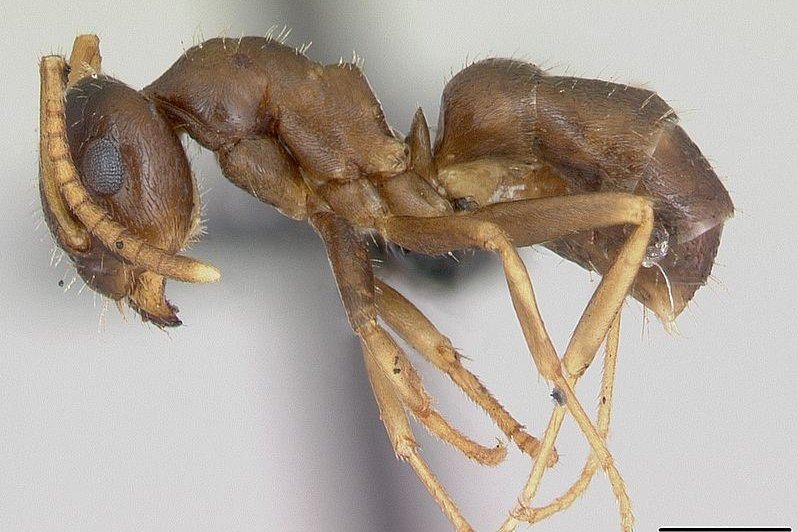The invasive super ants look similar to common black garden ants, but they're capable of building massive colonies stretching miles and featuring dozens of queens. Photo by April Nobile/
AntWeb.org
YORK, England, July 26 (UPI) -- An invasive garden ant hailing from Asia continues to conquer new territory in England. The species, Lasius neglectus, is capable of building super colonies boasting dozens of queens and several thousand ants.
This spring and summer have yielded three new "super ant" colonies, bringing the total number of colonies discovered in the U.K. since 2009 to six. Researchers say there are likely more yet to be identified.
Though they pose no harm to humans, scientists worry the massive colonies could disrupt local ecosystems and drive native insect species to extinction.
The invasive species looks much like a common black garden ant, only slightly smaller, but the super ants construct much more expansive colonies, sometimes stretching for miles.
"In the sites we have studied, it is clear they are excluding the native ants," Elva Robinson, an ecologist at the University of York, said in a news release. "They are clearly dominating, and where they cluster, native species are being pushed out."
The ant species likely arrived on plants imported from Asia. The first super ant colony was found in 1990 in Budapest, Hungary. It has since spread throughout Europe. So far, scientists say the ants appear to thrive exclusively in domestic gardens and greenhouses.
"We don't yet know whether these ants will be able to thrive outside areas of human habitation," Robinson said.
Researchers hope further study of the identified super ant colonies will allow pest-management specialists to develop best practices for eradicating the invasive species and curbing its spread.
"Gaining a strong understanding of its new place in the native habitat will help manage the situation, and we are on the look-out for new sites in likely areas and can verify new sites as reported by pest control, as garden ants can be difficult for members of the public to identify," Robinson concluded.















